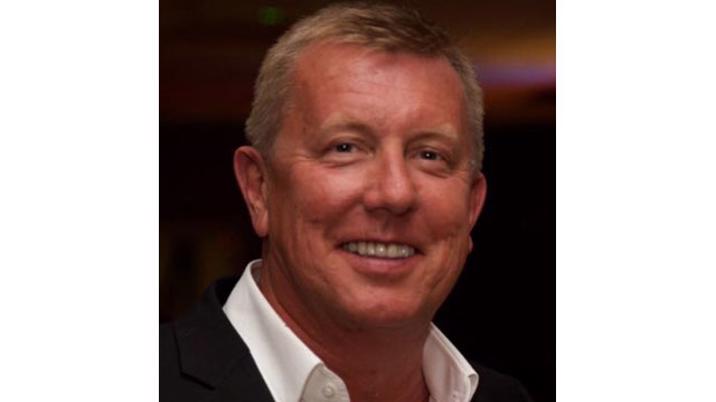
In the fast-changing digital media world, only those publishers who adapt their business models and continue to invest in training and research will prosper.
That was one of the headline findings from a four-month commercial review that Mark Hollinshead has completed at Trinity Mirror this year, following a commission from chief executive Simon Fox.
Hollinshead, who left his role as the company’s chief operating officer in 2015, is brutal about the state the industry was in by the time he came back to make his assessment.
“On the commercial side, the industry has continued in a Canute-like way trying to stop the decline of property, motors and job advertising,” the 57-year-old tells me, with his typical Black Country directness.
“They’ve got to realise that it’s gone. Publishers should concentrate on the things they can influence, not on the things they can’t. They should turn their attention to the categories that are in growth. The clue’s in the type of journalism that’s attracting large audiences online such as holidays and travel, health and fitness, food and drink, hobbies and pastimes, fashion and entertainment.
“It’s contextual advertising, driven in a smart programmatic way, that’s going to drive revenues going forward, where the right content attracts the right audience and will attract relevant advertising. Voice search will take over search engine optimisation in the next few years too, so publishers need to think about the consequences and opportunities that strategic step change delivers.”
It’s tough talk, but note that Hollinshead’s remarks are aimed at the entire industry. What about Trinity Mirror: is the UK’s biggest newspaper publisher heading in the right direction?
“Trinity Mirror is moving quickly to become the consolidator in the industry, and that’s the right thing to do,” says Hollinshead. “The Local World acquisition enhanced the coverage Trinity Mirror has in key urban markets.
“With large scale audience numbers being generated by their online news sites – in the likes of Glasgow, Manchester, Newcastle, Liverpool, Birmingham, Bristol, Belfast and Dublin – Trinity Mirror are in a strong position to deliver commercial scale to large regional and national advertisers, while continuing to be highly relevant to local communities.
Customer first
“That’s where house prices, school ratings and local traffic reports sit alongside reports on whether North Korea will start World War Three. In the newspaper business, without stating the bleeding obvious, it's still about creating great stories that attract an audience. An audience that’s relevant and appealing to advertisers. It’s the same online as it is print. All businesses have to start with the customer and work backwards.”
And so what needs to change? At this point, Hollinshead again drops any specific Trinity Mirror name-checks, addressing the industry in general. He says: “Publishers need to make time to focus more on strategy rather than kick-and-rush publishing.
“Strategy is all about gaining competitive advantage through having a clearly differentiated consumer proposition. We need to dig deeper into what is driving consumer behaviour and create products and content that matches their needs. Don’t use ‘clickbait’ to drive audiences but start to create home-grown local video content that increases dwell time and greater degrees of audience loyalty and attention.
“Also, two of the first costs to be cut in times of publishing austerity are training and research. I believe that is exactly the time to be investing in recruiting and training talent and researching what consumers want. Publishers should also engage with the communities they serve in deeper and different ways. Mass participation events is one area to look at more closely.
“The industry should focus on its unique selling points. Trust is still so important in news delivery. At a point in time, the Google and Facebook bullet train will start to slow down, and that’s when there will be a rejuvenation in media channels that are trustworthy. National and regional online news sites are in the perfect position to exploit this consumer desire for trustworthiness.”
Crystal ball
The constant digital drive is certainly transforming the media publishing world, with a growing list of regional titles closing during 2017. What does Hollinshead predict will happen during the next five years? His first thoughts on a 2022 scenario are pretty despondent: “Unfortunately, in the regional media, I believe there will be a lot fewer printed newspapers. The stronger conurbation titles will survive, but weaker titles will disappear.”
He’s brighter, however, about regional news sites: “They will become more influential as audiences continue to grow and revert to more trusted sources of news and information.”
Hollinshead’s predictions take in broadcasting too: “FM radio will shut down completely as digital radio flourishes. In TV, terrestrial audiences will continue to shrink as the market fragments further and social media channels become fully-fledged broadcasters in their own right.”
And what about the national press? “We will end up with three big groups: Trinity Mirror, News UK and DMGT. They will finally work collaboratively and sell national press and online advertising through a single sales and marketing operation.
“There will also only be four print super sites – in London, Midlands, North and Scotland – as publishers decide streamlining print and distribution is finally achievable.”
Whichever way you look at it, the media publishing world is being turned inside-out, and it’s happening fast. Hollinshead adds: “The only constant currently in publishing is the speed of change, and those media businesses that do not adapt their business models to enable them to live and breathe in the new digital media environment will not survive.”
A life in newspapers
Born in Wednesbury in the Black Country, Hollinshead forged his career as a traditional advertising executive. He worked at the Wolverhampton Express & Star in the 1980s, and was then headhunted to join the Birmingham Post & Mail as marketing manager.
This was after US company Ingersoll Publications had acquired what had previously been part of the Iliffe family business. Hollinshead recalls how in the early 1990s, he became “piggy in the middle” during dramatic infighting between an American management buy-out team and a British competitor headed by former Liverpool Echo editor Chris Oakley, who had been running the Birmingham business.
“My allegiance was with Oakley,” he says, “and we eventually fought off the American bid with a little help from Candover, the venture capitalists, to form Midland Independent Newspapers (MIN).”
Hollinshead then worked as business development director at Thomson Regional Newspapers, owners of newspapers like The Scotsman, the Belfast Telegraph and The Press and Journal (Aberdeen). But before long, he returned to MIN as group marketing director, and then took on his first managing director job in charge of all the group’s weeklies.
“It was at that point that we were fattening the calf for sale. I remember a famous evening in Claridge’s with Oakley and David Montgomery from Mirror Group. It was a courtship that quickly led to marriage. We sold MIN for £160m. Montgomery had rescued Mirror Group from the ruins of the Maxwell Pension scandal and was looking to build a diversified nationals and regionals business.”
Move to Glasgow
In 1997, Montgomery promoted Hollinshead to become managing director of the Scottish Daily Record & Sunday Mail Ltd, aged just 37. “It was a dream job,” says Hollinshead, who’s gone on to live in Glasgow for 21 years, although he’s still got his Black Country accent.
Soon after his arrival in Scotland, negotiations started between Mirror Group and Trinity Holdings to form what is now Trinity Mirror. Philip Graf of Trinity became the chief executive as Montgomery left to do other things. Then Sir Victor Blank became chairman and shook things up, bringing in Sly Bailey from IPC as the new boss.
In 2008, after eleven years as managing director in Scotland, Bailey promoted Hollinshead to become managing director of Mirror Group Newspapers – running the Scottish division at the same time.
“Sly got a bad press in many quarters,” remembers Hollinshead. “But I got on well with her. She was fair and let you get on with the job. Her mantra of ‘Strategy, Structure, People’ still rings true and simplifies what business is all about.”
After Bailey’s well-publicised departure in 2012, Simon Fox was appointed chief executive at Trinity Mirror. Hollinshead became chief operating officer, moving onto the main board, before leaving the company in 2015 to become chief executive of The Great Run Company. “After 21 years at Trinity Mirror and 30 years in media, and with an interest in sport, it was time to try something new.”
Hollinshead, who has three grown-up children and lives with his partner, a senior journalist in the Bauer Group, spent two years heading The Great Run Company. Then in June this year, he “fulfilled a long-held ambition” to launch his own company called Hollicom, a public relations and strategic communications business. And that was when Trinity Mirror tempted him back with one of his first major contracts – to review its commercial strategy.
Hollinshead’s favourite media
- What printed newspapers do you still buy? The Times, because it’s a great read and relevant to me and my interests. And the Daily Mirror and Daily Record because they are in my blood.
- What online news media do you rate? MailOnline is on my daily reading list. Martin Clarke, who I worked with at the Daily Record, has created a global destination news brand which has a degree of FOMO about it. Mirror.co.uk is also great for sport and, on a local level, GlasgowLive.co.uk is a great new innovation.










